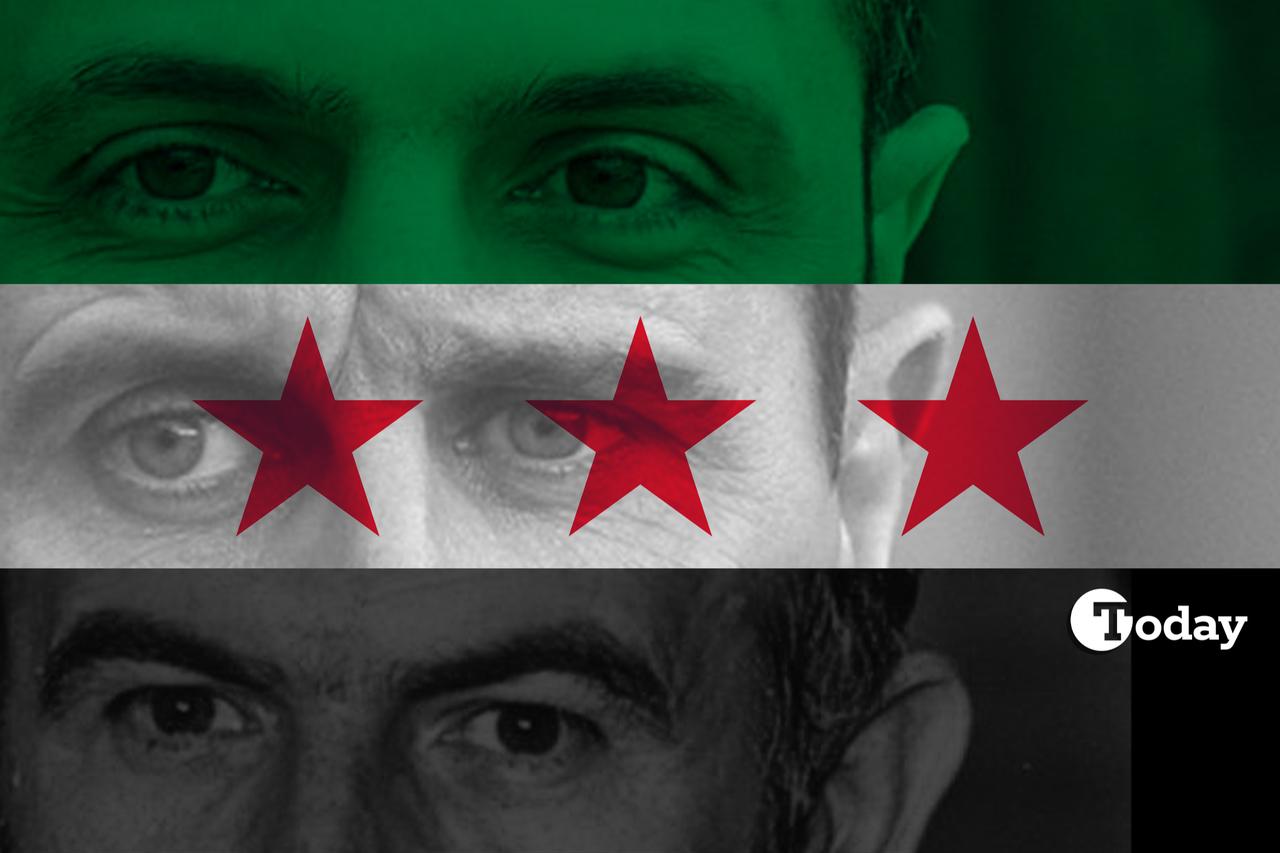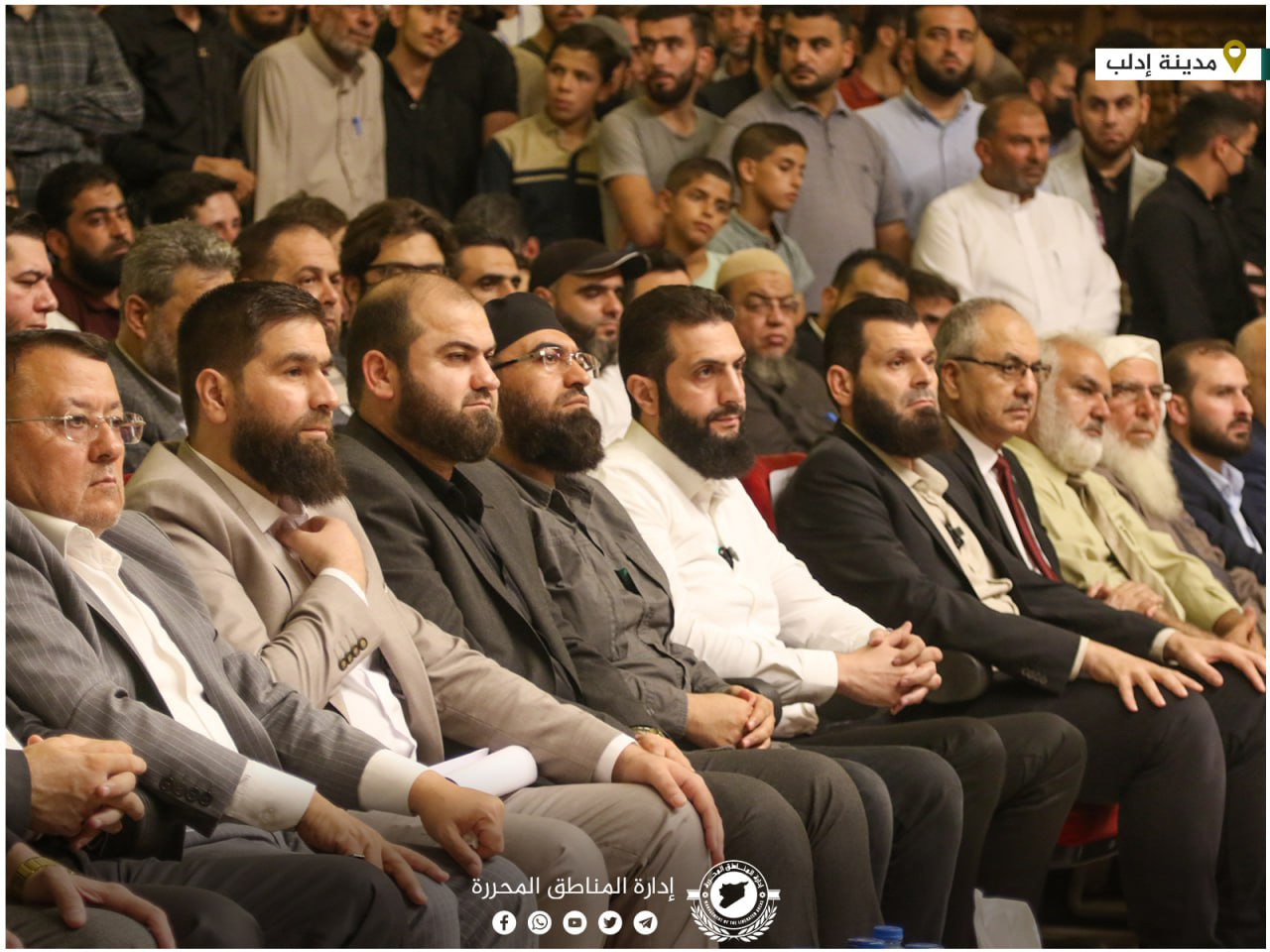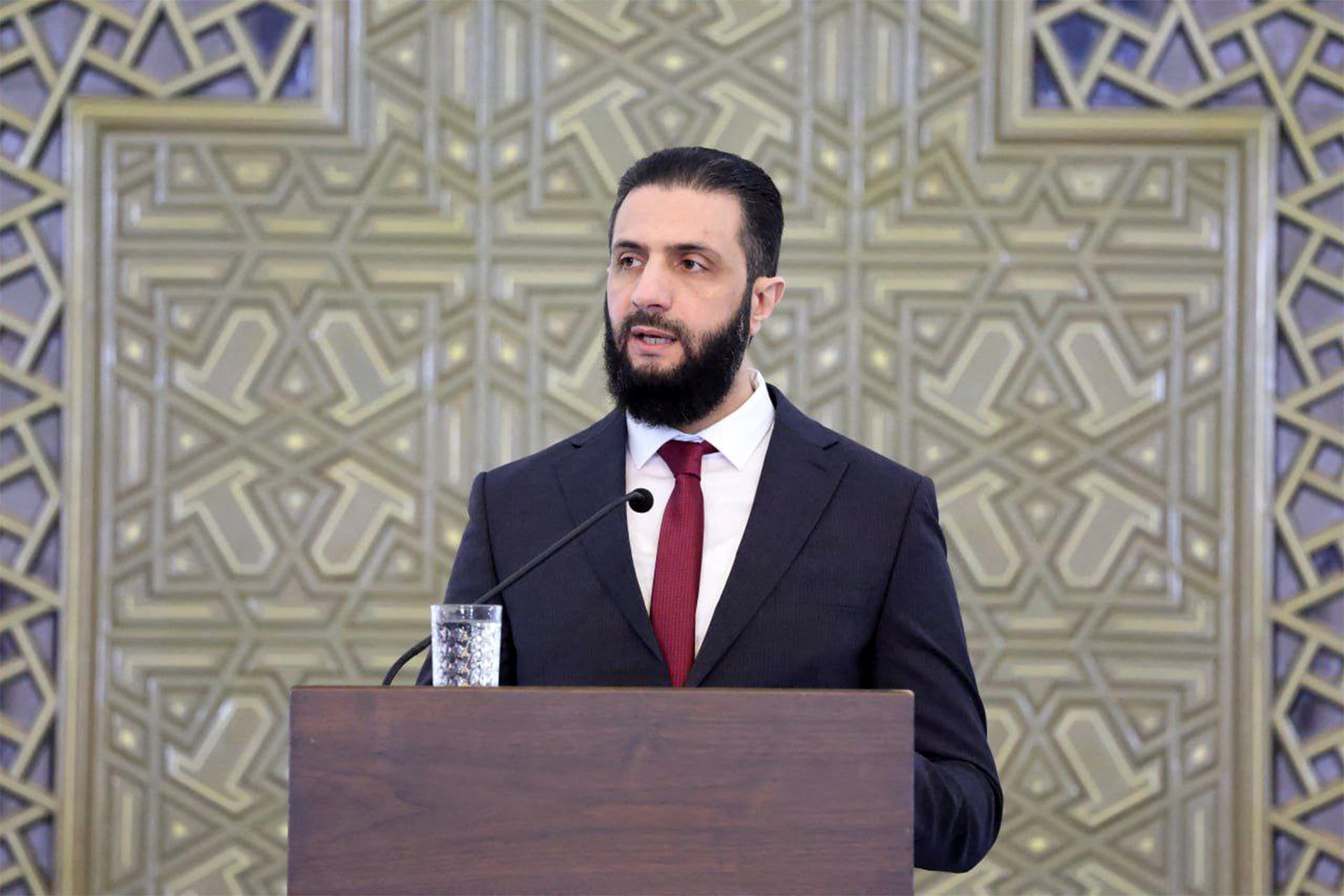
The world watches with cautious optimism as Syria enters a new chapter under President Ahmad al-Sharaa, the former al-Qaeda affiliate who has led one of the most remarkable ideological transformations in modern Middle Eastern politics.
Sharaa was named interim president of Syria in January 2025 after launching an 11-day offensive against the Assad regime in November 2024, which saw swift victories in Aleppo, Hama, Homs, and Damascus, ending the Assad family's five-decade rule.
Hayat Tahrir al-Sham (HTS), the organization that brought Sharaa to power, represents a fascinating case study of ideological evolution. The group's journey from Jabhat al-Nusra, al-Qaeda's Syrian affiliate, formed in 2011, to today's governance-focused movement illustrates a profound shift away from global radical ideology toward pragmatic local administration.
The transformation began in earnest in 2016 when the group, then led by Abu Mohammed al-Jawlani (Sharaa's former nom de guerre), publicly severed ties with al-Qaeda and rebranded as Jabhat Fateh al-Sham. This strategic pivot was formalized in 2017 with the creation of HTS through a merger with several other factions, marking the beginning of what the organization called its "Syrianization" program.

The ideological distance HTS has traveled becomes clear when examining their governance approach in Idlib province, where they controlled territory housing approximately 2 million people before their national victory.
Rather than imposing the strict interpretation of Islamic law associated with al-Qaeda, HTS focused on civilian administration and public services. Women were not required to wear the hijab, and while gender segregation was maintained in schools—a common practice across the Middle East—the emphasis was on practical governance rather than ideological purity.
The group's commitment to distancing itself from extremism was further demonstrated in August 2022 when HTS ideologue Abu Maria al-Qahtani demanded al-Qaeda's dissolution and urged its branches to cut ties. This marked a definitive break from the organization's origins and aligned with their actions against both al-Qaeda loyalists and Daesh cells within their territory.
What makes Syria's current transition particularly significant is how it reflects a return to historical Islamic principles of pluralism and minority protection. The bombing of the Mar Elias Greek Orthodox Church in Damascus on June 22, which killed 25 people, served as a crucial test of the new government's commitment to these principles.
President Sharaa's response was both swift and telling. The government attributed the attack to Daesh remnants, mobilized security forces, and successfully apprehended members of the terrorist cell while thwarting additional planned attacks, including one targeting a Shia shrine. More significantly, Sharaa personally called the Greek Orthodox archbishop to offer condolences, declared three days of national mourning, and emphasized that the attack targeted all Syrians, not just Christians.
This response aligns with the Quranic mandate found in Surah Al-Hajj (22:40), which explicitly calls for the protection of all places of worship—"monasteries, churches, synagogues, and mosques." The verse establishes that true jihad serves as a defensive mechanism to preserve religious freedom and coexistence, directly contradicting al-Qaeda's destructive interpretation of Islamic teachings.
The new Syrian government's approach mirrors the Prophet Muhammad's (pbuh) treatment of religious minorities, particularly his interactions with the Christians of Najran, who were offered protection without forced conversion. This model of coexistence, formalized in the Medina Charter, guaranteed rights for non-Muslims and established the principle that people are either "brothers in faith" or "equals in humanity."
Sharaa's government has actively worked to implement these principles. They have engaged with minority communities by returning confiscated properties, rebuilding churches in Idlib, and forming a diverse government that includes Christians and other minorities.
After capturing Aleppo, HTS met with church leaders and encouraged the resumption of normal religious life, demonstrating their commitment to the pluralistic society envisioned in Islamic texts.

The international community's response to Syria's transformation has been cautiously positive. Sharaa shook hands with President Donald Trump in Riyadh, Saudi Arabia, on May 14, signaling a significant shift in diplomatic relations. By May 2025, following this meeting, the U.S. lifted most sanctions on Syria, indicating growing international confidence in the new government's direction.
This diplomatic progress reflects HTS' broader strategy of seeking partnerships with Türkiye and dialogue with Western countries—a stark departure from al-Qaeda's confrontational approach to international relations. The group's cooperation with American intelligence agencies to combat Daesh and remaining al-Qaeda elements further demonstrates their commitment to mainstream governance.
Despite these positive developments, Syria's transition faces significant challenges. The government continues to struggle with controlling various armed factions, and sectarian violence remains a threat, as evidenced by the church bombing. However, when compared to Iraq's experience after the fall of Saddam Hussein, Syria's transition has been remarkably smooth.
President Sharaa has responded to these challenges with institutional reforms. Following sectarian violence in March 2025, he established a fact-finding committee to investigate attacks on minorities and formed a higher committee to maintain civil peace, with results expected by August 2025. In January 2025, he ordered HTS (and all other armed groups) to disband, demonstrating his commitment to establishing a state monopoly over the use of force.

What emerges from Syria's transformation is a model of Islamic governance that contrasts sharply with the extremist interpretations that have dominated headlines in recent decades. Sharaa's approach embodies the Quranic principle of "no compulsion in religion" (Surah Al-Baqarah, 2:256) and the Prophet's example of creating a pluralistic society where Muslims, Christians, and Jews could coexist peacefully.
In a speech following his appointment, Sharaa set out Syria's priorities as "filling the power vacuum, preserving civil peace, rebuilding state institutions and working to construct a development-oriented economy"—goals that reflect a pragmatic approach to governance rather than ideological extremism.
Syria's transformation under Sharaa offers hope not just for the Syrian people, but for the broader Middle East. It demonstrates that groups with extremist origins can evolve toward inclusive governance when they prioritize the welfare of their populations over ideological purity. The country's emphasis on protecting minorities, rebuilding institutions, and engaging with the international community suggests a path toward stability that seemed impossible just years ago.
The world is witnessing the emergence of a Syria that protects its Christians while they celebrate Sunday Mass, safeguards its Shia shrines, and includes all communities in its vision of national unity. This is not the Syria that al-Qaeda envisioned, but rather one that reflects the historical Islamic tradition of pluralism and coexistence.
As Syria continues its transition, the international community would do well to support this remarkable transformation. The alternative—a return to the extremism and violence of the past—serves no one's interests. Instead, Syria's new path offers a model of how former extremist movements can evolve into responsible governance structures that honor both Islamic principles and universal human rights.
The journey from al-Qaeda affiliate to national leader is unprecedented in modern history, but Sharaa's commitment to inclusive governance and minority protection suggests that this transformation may be sustainable. For a region long plagued by sectarian violence and extremism, Syria's new direction offers something precious: hope for a better future.